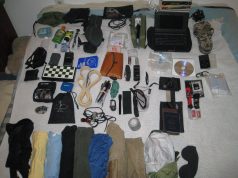
Improve Your Personal Finances With These Tips
Even if you have had difficulties with your personal finances in the past, you do not have to continue on that negative cycle. By learning how to take charge of your money and understand how your finances operate, you can plan your budget and have a successful financial future.
To find real space in your personal finance, stop thinking about income and expenses at the same time. It is essential to track every penny of both, but if you pay attention to them simultaneously, all you end up doing is balancing your budget and not saving anything. Cap your expenses at 70% of your income and see the difference.
If you have children, start saving very early for college. By doing this, you will be able to maximize on the compound interest, and it will help you meet the rising cost of a college tuition. Even if you do not have children right now, but are planning to in the future, you can start putting away some money.
You can save money by tweaking your air travel schedule in the small scale as well as by shifting trips by days or over seasons. Flights in the early morning or the late night are often significantly cheaper than mid-day trips. As long as you can arrange your other travel requirements to fit off-hour flying you can save a pretty penny.
If you don’t already have one, open an IRA. You can contribute catch-up funds anytime throughout the year to get your maximum interest. This is also tax deductible. So, if you need to find a few more ways to raise those deduction amounts, it’s better to pay yourself, than uncle Sam.
Don’t endanger your home and retirement. These are the two assets that people put up most often for collateral, despite the huge risks. Do so only as a last resort and with a clear repayment plan. Keep the mortgage loan to less than 80 percent of your home’s worth. Don’t touch the retirement, as it will come whether you are ready or not.
Writing down the amount you spend each day can be helpful in understanding where you spend your money. However, if you write it in a notebook that gets closed and set aside until you open it again the next day, it might become a case of “out of sight, out of mind”. Instead, try setting a full-size white board in your bedroom or office to list your expenditures. You will see it often throughout the day so the message stays fresh.
When creating a budget, spread your expenses over each paycheck for the month. Add up your bills and divide by how many times you are paid each month. Through the year you will occasionally get an extra paycheck if you are paid weekly or bi-weekly. You can use this extra paycheck to pay for less frequent expenses, such as those that come yearly.
You now have the tools to begin being in control of your personal finances. Take the tips that apply to your situation and begin a new life of financial independence where you are knowledgeable and in charge. You deserve to have the peace of mind that comes from securing your personal finances.









